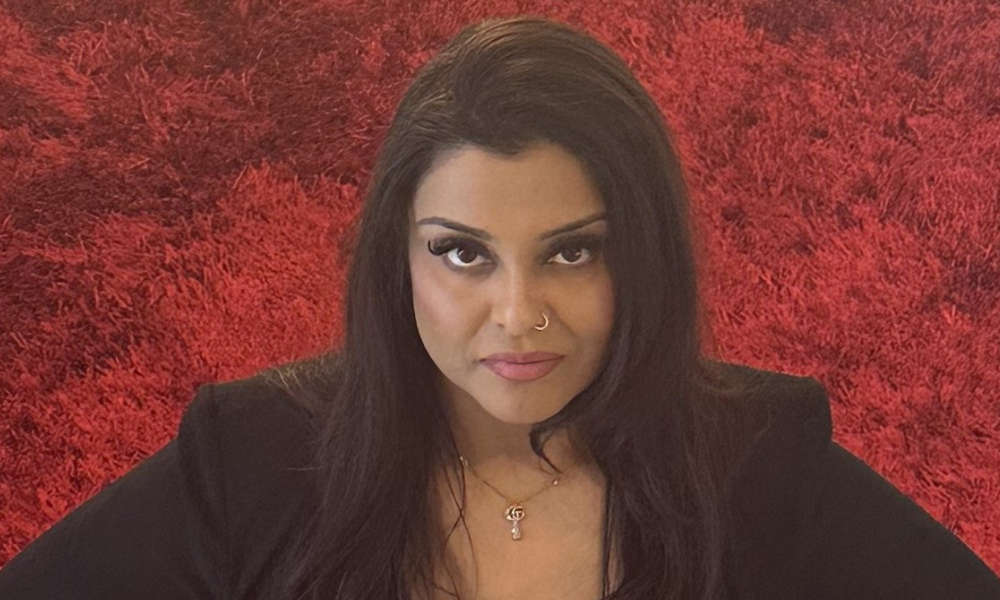
Saba Ahmad aims to practice family law in Edmonton now that she has graduated

A turning point in Saba Ahmad’s desire to become a lawyer – specifically a family law practitioner – came during one of the hearings regarding issues in her own divorce.
“I was arguing for spousal support, and I was asked by the lawyer [for her estranged husband], ‘Why haven’t you gotten a job yet,’” says the 42-year-old mother of three.
“I answered that I was taking some classes, preparing for the LSAT and planning for my future because my life had been turned upside down. I said I wanted to get into law school. Well, the lawyer just laughed and said, ‘Do you know how hard it is to get into law?’ And that’s when I said to myself, ‘Just watch me.’”
Indeed, Ahmad walked across the stage at the University of Saskatchewan earlier this month to collect her law degree. “It was the most amazing moment,” she says, especially with her sons, parents and other family there to cheer her on. One son shouted out, “Go, Mom!”
Adds Ahmad: “It was just such a joyful feeling – my heart was filled with gratitude. The odds were stacked against me, but I did it – it’s what I am meant to do.”
For Ahmad, who was pressured to wed when she was 20, earning her law degree was a stop on a long road to rebuilding her life following a painful, complicated and drawn-out divorce.
And that long road was not just a symbolic one, but a literal one too, as she made the bi-weekly drive from Edmonton to Saskatoon – five hours one way, five hours back – every two weeks, often on Alberta’s and Saskatchewan’s notoriously tricky and icy winter roads.
Even getting accepted into the law school at U of S was challenging, she says, noting that the year she applied, 2021, was particularly competitive, given that many people were taking advantage of COVID-19 to apply to law school. “There were 1,200 applications for 126 spots, and I got one of them.”
Luckily, for her third year, Ahmad could complete her law degree as a visiting student at the University of Alberta, avoiding the long trek to Saskatoon.

Saba Ahmad celebrates graduating from law school with her sons Aayan, Armaan, and Azaan Hussain.
As for the law school experience itself, Ahmad admits that sometimes it could be “very, very, difficult,” especially as a mature student with a family to look after, including two sons with Type 1 diabetes. However, she also found going to law school was “incredibly rewarding,” as she found it “very practical and something I could comprehend and apply to my own life.”
Ahmad also realized “what a privilege” it was to have gone back to school to study law, knowing that she could ultimately have a powerful impact on the lives of others, especially South Asian women, who are part of a culture where divorce is generally frowned upon.
“There is such a stigma attached to divorce in the South Asian community,” she says, and women in that community often don’t know where to turn. As for lawyers, Ahmad says family law practitioners frequently don’t understand the complications of divorce in the South Asian community from a cultural perspective.
“Even for myself, I found it hard to find a lawyer to empathize with me and relate to how much of a scary step this was for me.” She talked to several before she found someone she could feel comfortable with.
“But that process made me realize there needs to be more representation for these women.” Many also are financially supported by their husbands, so the costs of consulting with a lawyer come into play.
She’s already heard from people within the community who know about her becoming a lawyer and want to know when she’ll be able to actually practice so they could potentially use her services.
The circumstances of Ahmad’s marriage and divorce reflect some of the challenges other South Asian women must feel.
“There was a lot of pressure to get married,” she says, noting that hers was one of a relatively small number of Pakistani families in Saskatoon. She adds that an arranged marriage is a way to preserve cultural values and heritage for many parents.
For 14 years, she built a successful orthodontist practice with her husband, taking on many of the financial tasks of running the business. After 14 years, Ahmad felt that priorities in the marriage had shifted, putting the marriage in trouble, and she felt divorce was the best option left.
But lawyers from outside her culture often don’t understand the stigma of divorce from a cultural perspective. They’d think, “People get divorced all the time; what’s the big deal?” And I’d say, ‘You don’t understand how hard it is to have three kids, run a successful business with your spouse and finally decide to walk away.”
Going to law school was also important in setting an example for her sons, 15, 13 and almost 12. “I wanted to let them know their mom is a strong person and walked away from a good lifestyle and then completed one of the toughest programs out there.
“I also want them to know that with hard work, they also can pursue their dreams.”
Ahmad is looking forward to starting her articling placement in September but will spend the summer taking accelerated courses to pass the bar exam. She is also looking forward to spending more time with her sons now that she can.
As for the future, Ahmad knows that she’ll want to work for a firm to “get as much experience and become the best lawyer I can be.” She also wants to volunteer to help women in situations like she did.
And with her business background, she also thinks she may want to open her own practice, using both skill sets. “At heart, I am a bit of an entrepreneur; that’s definitely ingrained in me.”